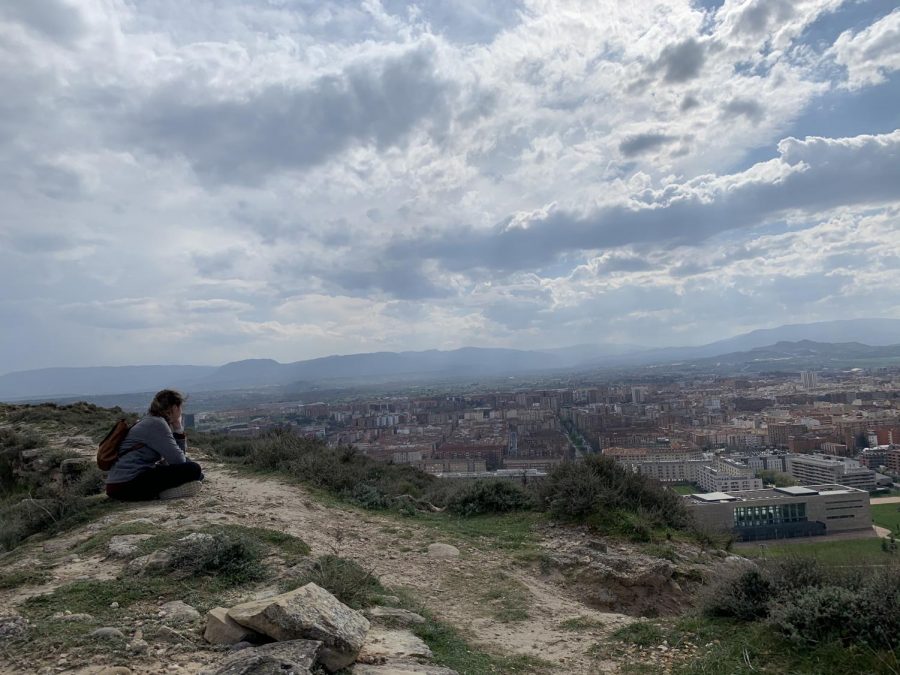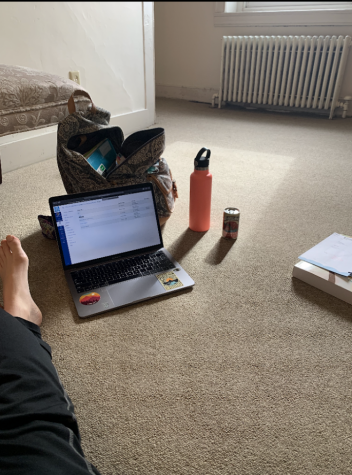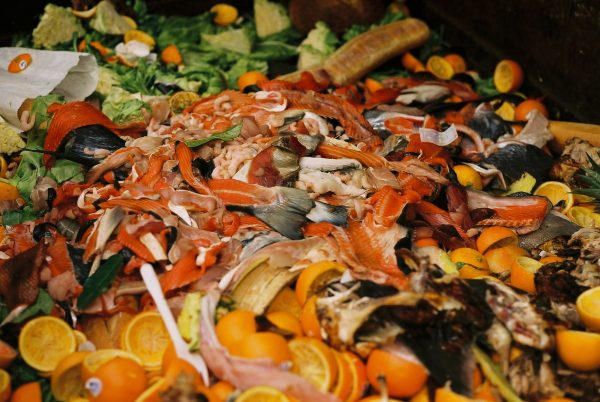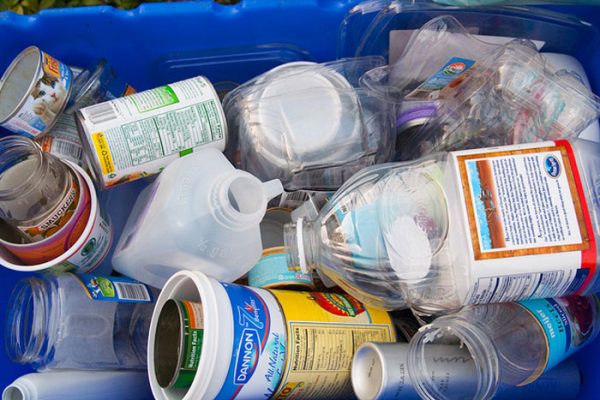MoCo Fulbright Scholar on Leaving Spain Because of COVID-19
When I arrived in Spain in September 2019, I was blown away by a country whose people smiled infectiously and spoke three easy words without a care in the world: “no pasa nada.”
This mantra quickly became a favorite amongst the American Fulbright Scholars and English Teaching Assistants choosing to live in Spain for the year, as we heard practically everyone say it, from landlords to bank tellers to coworkers to bartenders to elderly grandparents drinking their wine on the streets at close to 9:00 a.m.
Everyone shared this sense of peace; the always-on-the-go American style is not accustomed, or even appreciated, there.
Living in La Rioja, Spain – the region of wine – we all pretty quickly fell into step with this new mantra, which means “don’t worry about it,” and it did not take long to appreciate the results. Life happened, and we learned that the pieces fell, whether or not we tried our hardest – and failed – at controlling how the pieces fell.
For me, things started shifting when France reacted to the devastating effects the coronavirus was having on Italy.
At the time, my school was hosting French girls for a cultural and language exchange program. The visiting seventh graders were promptly asked to return to their country; rumors were flying that the border was going to close between France and Spain – an affronting concept to many, that borderless Europe would be instating borders.
Then came the outbreak on the Canary Islands during Carnival in late February, an event which pulls close to tens of thousands of visitors. And from then on, it spread rather quickly.
When my region, La Rioja, announced the closure of schools for a two week period – which has now turned into over a month’s worth of closures – we knew things were coming to an end. Soon after, Spain was set at a Level 3 travel advisory and the Spanish president announced a travel ban. At about this time, the Fulbright program decided to call us home.
During the last week that I was in Spain, I watched the “no pasa nada” lifestyle rapidly shift.
Police officers were out monitoring the streets, asking questions about where we were going and enforcing quarantine. Police tape was wrapped around the parks to keep families away. There were officers stationed at the small grocery stores, letting in one or two people at a time to quickly stock up on their needs. The roads to enter and exit cities were blocked by guards.
Within a span of three days, the streets went from being crowded with kids excited from having no school, grandparents enjoying the warm weather, and people walking with their dogs to an empty ghost town.
And yet, in those days I also saw a display of joy and unity that gave us all one of the most precious things we could have: hope.
One night while being quarantined, I heard the distinct sound of clapping and cheering outside my window. I went out to the balcony and witnessed dozens of neighbors joyfully cheering, whistling, yelling, clapping, and dancing.
Their exuberant rally gave me a sense of harmony with my block, with my city, and with Spain as a country; they were showing just how resilient Spain could be, even during a time of mass chaos.
The event did not just stop there; every night at 9:00 p.m. families flooded their balconies or street-facing windows where the “scheduled program” had them dancing, singing, lighting up their mobile flashlight, and just generally showing neighborly support against the virus, as well as for the many people who were out fighting against it.
My flight was originally scheduled to leave on Friday, March 20 but was canceled, along with 75% of outgoing international flights. Acting quickly, I fortunately was able to reschedule for an earlier day, Wednesday, March 18, due to our growing concerns that the Spanish airports would close.
On the day I left Logroño, my beautiful city in La Rioja, I felt heartbroken.
I was effectively fleeing my new home without getting a chance to say goodbye to students, friends, and people who have become family.
Walking to the bus station to take the four-hour bus ride to Madrid, one of the few bus rides still running, I encountered police officers, members of the national guard, and workers in hazmat suits disinfecting the city, but nothing of the scene felt like the home I was accustomed to.
My flights from Madrid, Spain to London, United Kingdom to Newark, New Jersey, landed safely on Wednesday afternoon. The day after I left, helicopters flew around the city spraying disinfectant from above and the majority of flights leaving Madrid were effectively cancelled.
Today, Spain has over 65,000 infections, the fourth highest number in the world, behind only China, the United States, and Italy. Living and working in Spain showed me a culture that loves deeply, shares readily, laughs joyfully, and is surrounded by beauty.
I am incredibly thankful for the opportunity Fulbright provided me to learn to love a country that is now another home. I never thought I would fall in love so deeply. I learned how to be brave and empathetic, as well as how to be a better teacher, listener, Spanish-speaker, friend-maker, and sight-seer. I could not be more grateful.
We must learn from Spain, and remember the seriousness of what is happening around the world.
Those who are dismissing the severity of the virus must reconsider. The impact of the virus on communities around the world, and therefore your personal life, is concrete. The virus has affected people from all ages, and even if it is “just a minor” case, it is still contributing to the spread.
To overcome this pandemic, we must commit to protecting ourselves, people we love, as well as people we do not know and #quedateentucasa (#stayhome).











